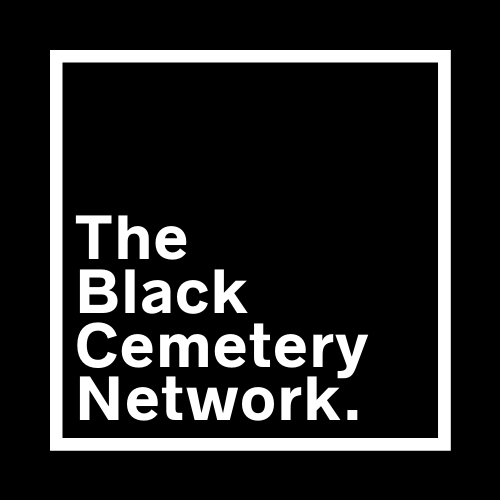SITE DIRECTORY
To learn more about any of the BCN sites listed below, click “Read more” to view individual site briefs. To search for a specific BCN site, use the search bar below:
Woodland Cemetery
WOODLAWN CEMETERY
FOUNDED: 1917
ADDITONAL NAMES: N/A
AFFILIATION(S): N/A
HISTORY:
Opened in 1917, during the Jim Crow era in the capital of the confederacy, Woodland's roads and front gate were built by local African American contractors. In 1916 when the cemetery was under construction, the pond was still in use as indicated by the newspaper advertisement. Families would picnic by the pond and paddle boat in it. Mitchell’s desire was to create a dignified and respectful place for African American families to come and pay homage to their deceased family members. Mitchel named the roads at Woodland after African American heroes of that era as a counter to the erection of the confederate statues on Monument Ave. Not only are the elite of Richmond’s black community buried here but Woodland has served as a dignified resting place for our US veterans of the Spanish-American War, World War I and II, the Korean War, and the Vietnam War. Woodland Cemetery is a testament to the perseverance, dignity, and the desires of the African American community to be respected. John Mitchell was acutely aware of these feelings and his vision provided a way for respect to be shown with pride.
The significance of this cemetery is that it is evidence of a history that will be lost if we do not preserve it. Our children will grow up ignorant of the accomplishments and contributions of a whole segment of people who greatly contributed to the development of the City of Richmond. Considering the criticism and removal of African American history from our schools, Woodland will be a counter to an unbalanced history that is taught today by referencing the true history of the struggles and accomplishments of African Americans. Without Woodland’s historical contribution our children will not only grow up unaware of their history and leaving many to feel insignificant and marginalized.
BCN Contact Information:
Marvin Harris
mharris@mapinv.com
Anderson Cemetery
ANDERSON CEMETERY
FOUNDED: 1867
ADDITONAL NAMES: None
AFFILIATION(S): None
HISTORY:
Anderson Cemetery is one of the earliest black cemeteries in the Yellow Tavern area of Henrico County, outside Richmond, VA. William Kennedy, clerk of Mount Olive Baptist Church, formed the Sons of Jacob, a fraternal organization which pledged "to attend to each other in times of sickness and distress and to see each other decently buried after death." This two-acre cemetery continued to serve the community for more than a century and includes the graves of ex-slaves, freeborn blacks, farmers, pastors, business leaders and war veterans. Grave markers provided by families, church aid clubs, fraternal groups and other organizations reflect the strong bonds formed across the community.
BCN Contact Information:
Tony Wharton
bluepeter37@gmail.com
EAST END CEMETERY
EAST END CEMETERY
FOUNDED: 1897
ADDITONAL NAMES: Greenwood Cemetery
AFFILIATION(S):
Friends of East End Cemetery
HISTORY:
Founded in 1897, East End Cemetery is the final resting place of an estimated 15,000 African Americans, among them some of the most prominent Black Richmonders of the turn of the 20th century. The cemetery was established the year after the U.S. Supreme Court, in Plessy v. Ferguson, affirmed the constitutionality of racial segregation, which followed African Americans to the grave.
Even as Jim Crow laws proliferated across the South, Black Virginians continued to build and nurture their communities and their institutions while fighting to participate in broader civic life. In the decades following the Civil War, they created churches, schools, businesses, social clubs, mutual aid societies. Evidence of these is everywhere at East End.
BCN Contact Information:
Erin Hollaway Palmer
ehollaway@gmail.com
Shockoe Hill African Burying Ground
Shockoe Hill African Burying Ground
FOUNDED: 1816
LOCATION: Richmond, VA
ADDITIONAL NAMES: 2nd African Burial Ground
HISTORY:
The Shockoe Hill African Burying Ground was established in 1816 by the City of Richmond, VA as the replacement for the Burial Ground for Negroes (now referred to as the African Burial Ground) in Shockoe Bottom. The new burying ground on Shockoe Hill, was laid out along the northern end of Fifth Street near the city’s poorhouse. It began as two adjoining one-acre plots, one for free people of color and one for the enslaved. The grounds expanded greatly over time to encompass as many as 31 acres. With an estimated 22,000 plus interments, it was/is likely the largest burial ground for free people of color and the enslaved in the United States. After closing the burying ground in 1879 due to overcrowd conditions, the city repurposed the site, making the burial ground unrecognizable today.
There are likely hundreds of thousands, if not millions of descendants of the people who were buried within these grounds all over the United States (though not yet aware of their connections). The burial ground and its people have suffered many abuses/desecrations over its long history, and it remains under threat to this day. Present threats include the DC2RVA high-speed rail project, and the proposed widening of I-64. Please see the Wikipedia page for the Shockoe Hill African Burial Ground for additional information, or any of the other sources listed below.
RESOURCE LINKS:
BCN Contact Information:
Lenora McQueen
shockoehillafricanbg@gmail.com





